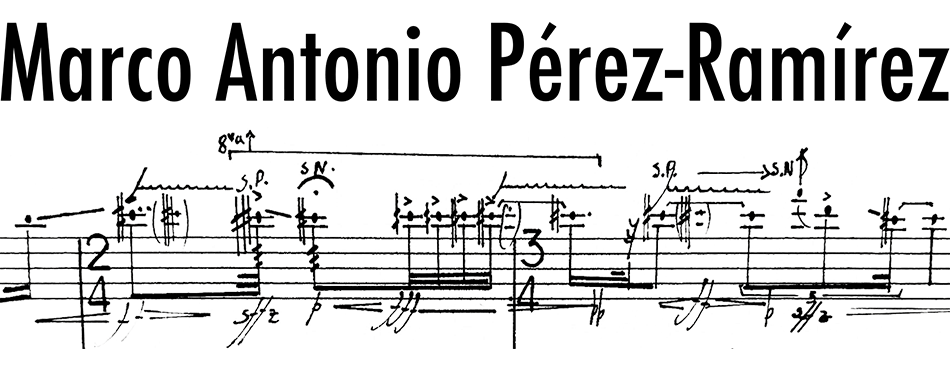Shouting Silences, magnificently performed by Pierre Strauch, enriches the contemporary cello repertoire in the same way that Penderecki did over forty years ago with his Sonata for Cello and Orchestra. Didier van Moere, concertonet.com
Achachilas is music that doesn’t try to manipulate anyone, either by using reassuring markers or catchy effects. Written with great refinement, it emerges from who knows where to exist on its own without having to resort to the idea of a route; so it very discreetly contaminates the listener with its mysteries without designating them.
Bertrand Bolognesi, anaclase.com
Du Corps… The young musician continues his longstanding quest for the body, this time inspired by Antonin Artaud’s blasphemous phrase: “Du corps, par le corps, depuis le corps, avec le corps et jusqu’au corps”.
A physical investigation into time and instinct, where he meets Bergson and Tapiès.
This body is in movement, tracked by a physiological exploration: the trombone blows, the timpani pulsates…. A captivating tension carried through to the end.
What do you ask of an artist if not to throw himself into the void every time he creates? asks Perez-Ramirez. Last night he took that great leap into the absolute.
Michèle Fizaine, Midi Libre
Edades Ciegas, a powerful, mineral work… The heart-rending violin opening, performed by the Orchestra’s Venezuelan soloist Alexis Cardenas, marks the start of a demanding work, conducted with a firm baton by Fabien Gabel. Christian Girault
ARTE, Le journal de la culture
reportage ARTE TV
broadcast janvier 2007
Rimbaud, la parole libérée
Perez-Ramirez questions the operatic genre through the globalisation of his methods, which he implements with well-considered discernment, a genre to which he does not submit with the naïve fatality of some and which he does not, for all that, subject to the restriction of the field of action of others… the absorption of the senses imagined by Perez-Ramirez goes straight to the point.
Fifty minutes of incredible density carry the spectator away to the point of beating them as you tenderise octopus.
It happened. I know how to salute beauty – (Rimbaud). And so did the audience in Montpellier, as evidenced by the enthusiastic reception this production received. Bertrand Bolognesi, anaclase.com
Deliberated singing, an elusive and unclassifiable opera. The singing is distributed between spoken, sung and recitative, without it being clear where one begins and the other ends. The orchestral ornament is of the same ilk, oscillating between decaying friction and accentuation where one would hardly expect it. Swirling movements (directed by Laurence Saboye), small allusive video projections, immaterial lighting: the dream takes shape. And the audience succumbs. Pierre René Serna, Scènes Magazine, Genève.
A total work. Alain Breton, l’Hérault du Jour.
Throughout the work, the orchestra is strangely subdued; a brief brass passage captivates the ear, but otherwise the simple atonal punctuation serves to underline the text, whose treatment shows Pérez-Ramirez in all his originality. The sung text alternates with rapidly spoken passages, thus preserving a rhythmic structure, with certain passages emphasised by repetition or syllabic insistence… an evening that encouraged a re-reading of the poet’s works. Stephen J. Mudge, OperaNEWS juin 2007, USA.
We are plunged into a multiple polyphony that purports to speak for a simultaneity of messages, as at the beginning of the third act of Berg’s Lulu or in a painting from Zimmermann’s Die Soldaten. Who is who, who is singing what? A passionate, stifling family reunion. Claude Glayman Opéra Magazine
Opera is an assembly of very fine colours and nuances. Singing is often speech, oscillating between the two.
And we end up with the grand final aria, which is a masterpiece.
JM Douillard







